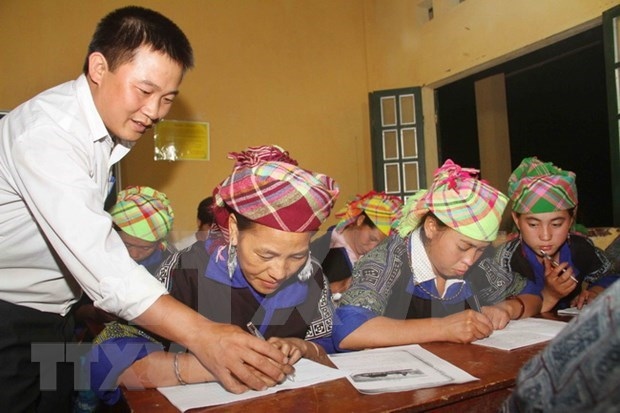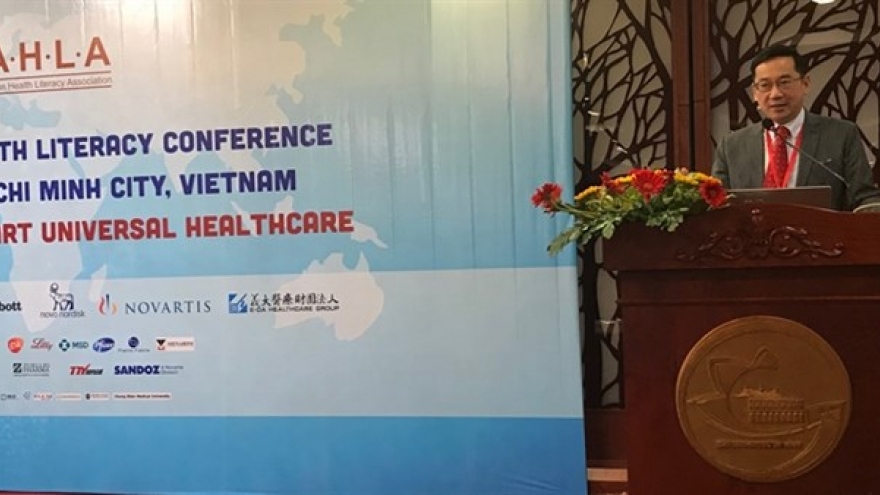Over 300,000 people escape illiteracy in eight years
Literacy classes have been organized for more than 300,000 people aged 15 – 60, over the last eight years, the Ministry of Education and Training unveiled during a recent video teleconference (VTC).

The national VTC was held on June 18 to review the implementation of a project on building a learning society from 2012 – 2020.
The ministry said thanks to the project, the network of educational establishments was expanded nationwide. The country now has over 17,000 continuing education centres, providing non-formal education for out-of-school youth and adults.
There are also more than 10,000 community learning centres across the country.
The country has completed universalisation of pre-school education for five-year-old children and primary education for children of school age.
In the next phase from 2021 – 2030, the project aims to help Vietnam develop an open, flexible and connected education system and make sure all people will have an equal opportunity to access high-quality life-long education.
Vietnam met the national standard for literacy in 2000, with 94% of the population aged between 15 and 35 literate, compared to more than 95% of the population being unable to read or write in 1945. The literacy rate in this age group increased to 98.1% in 2016, according to the Ministry of Education and Training.

